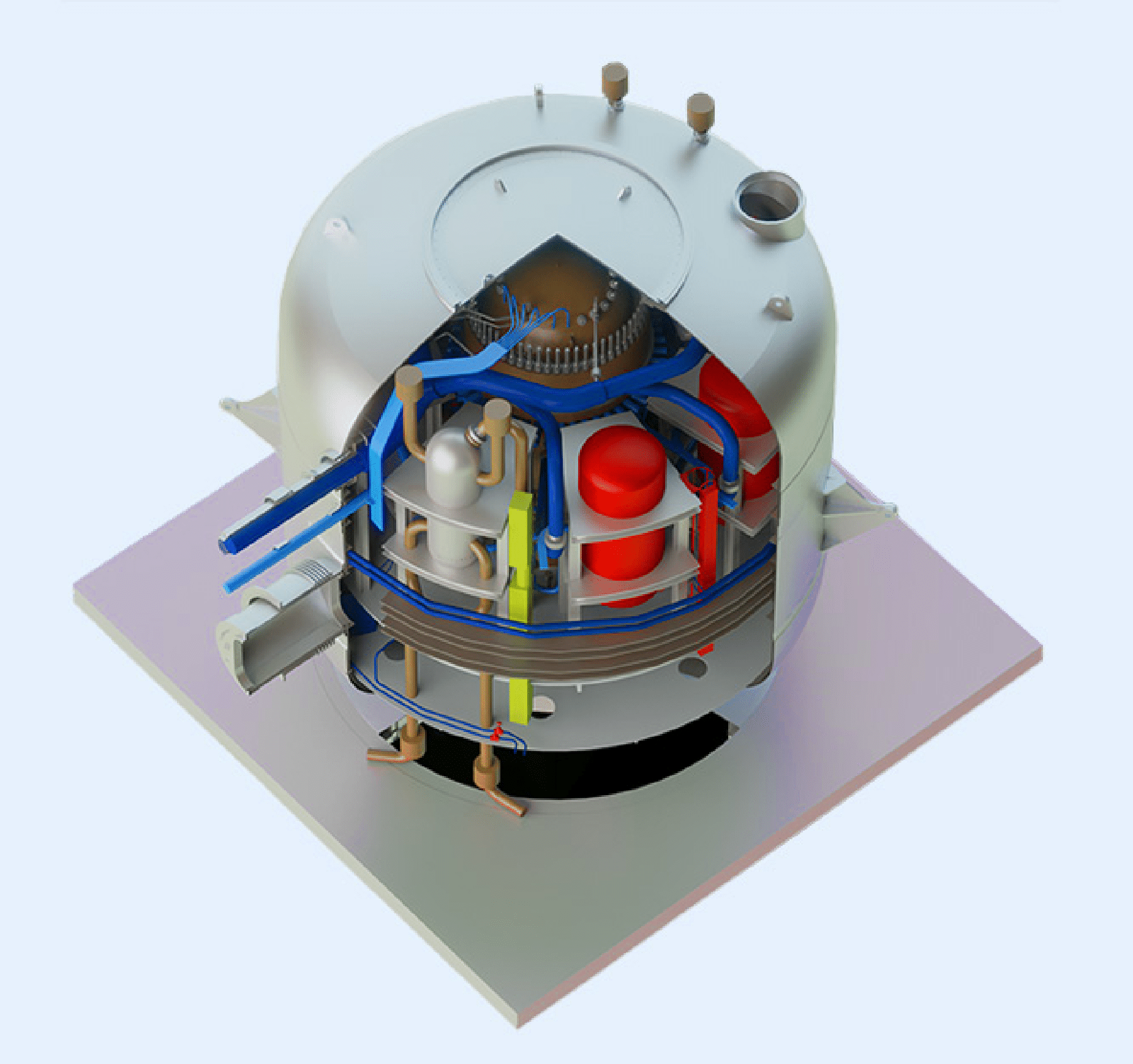2

The second is developing new reactor concepts such as the small modular reactor (SMR), the advanced modular reactor (AMR), or the micro modular reactor (MMR). These different concepts can use either a thermal or fast neutron spectrum with a choice of possible coolants (water, sodium, gas, etc.). A technological breakthrough in research, the molten salt reactor (MSR) is also being investigated. As for other Generation IV reactors, sodium-cooled fast reactors (SFR) are being studied with the objective of closing the fuel cycle, while high temperature reactors (HTR) are being investigated for their capacity to provide high-temperature heat. Combined with these new concepts, the fuel assemblies, fuels and technologies for tomorrow’s nuclear industry are the focus of R&D driven by innovation.